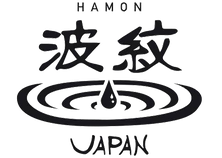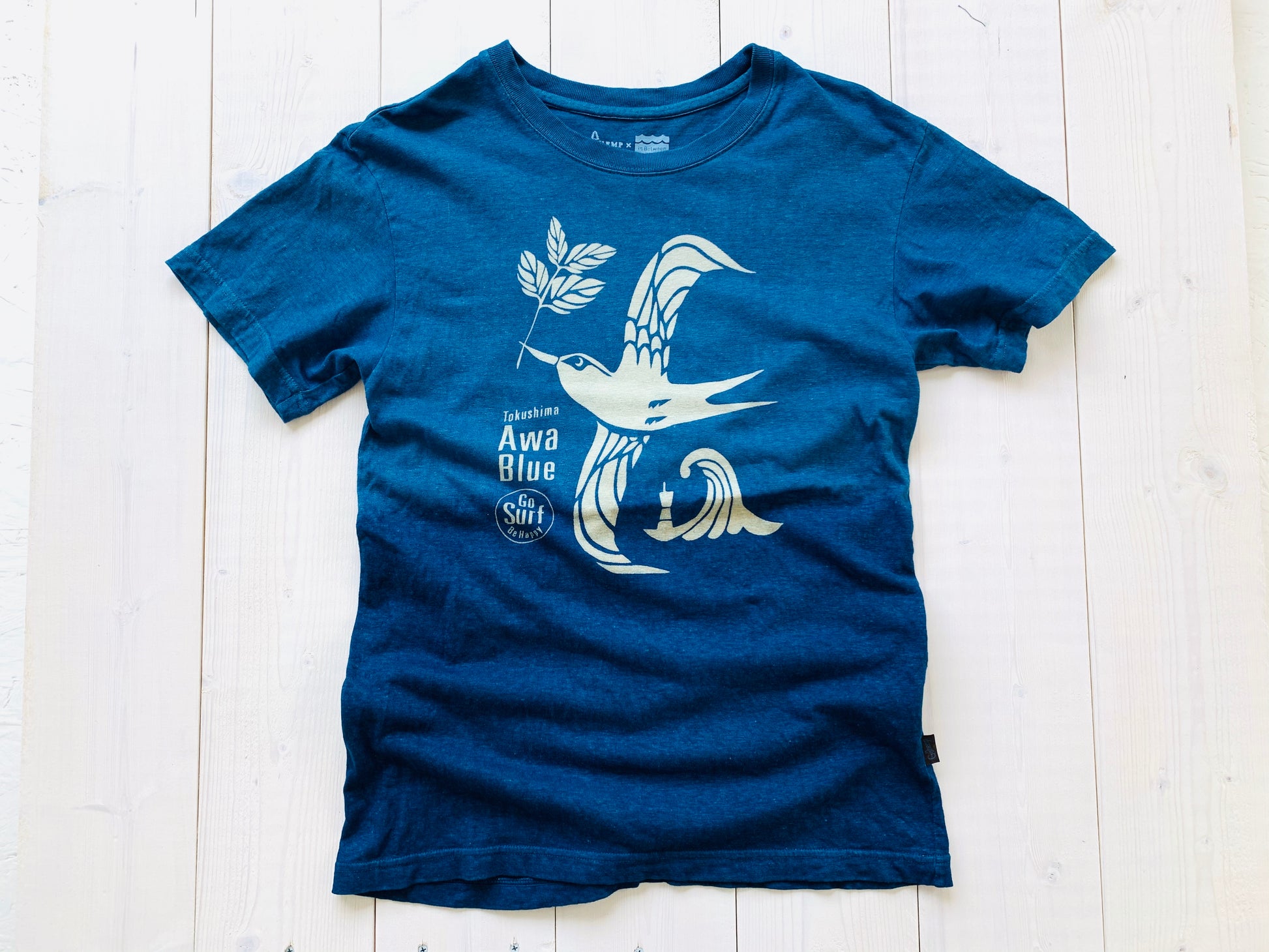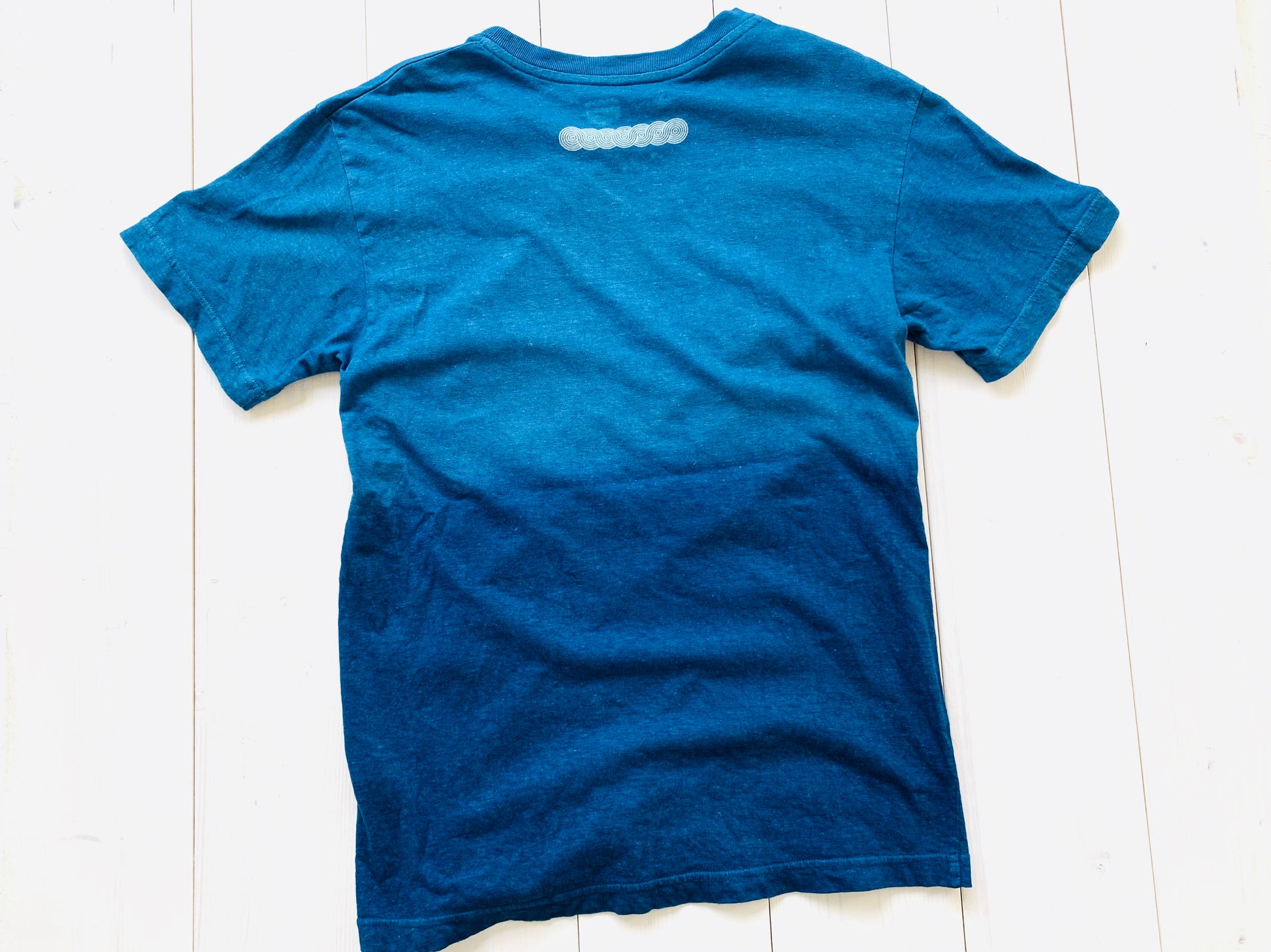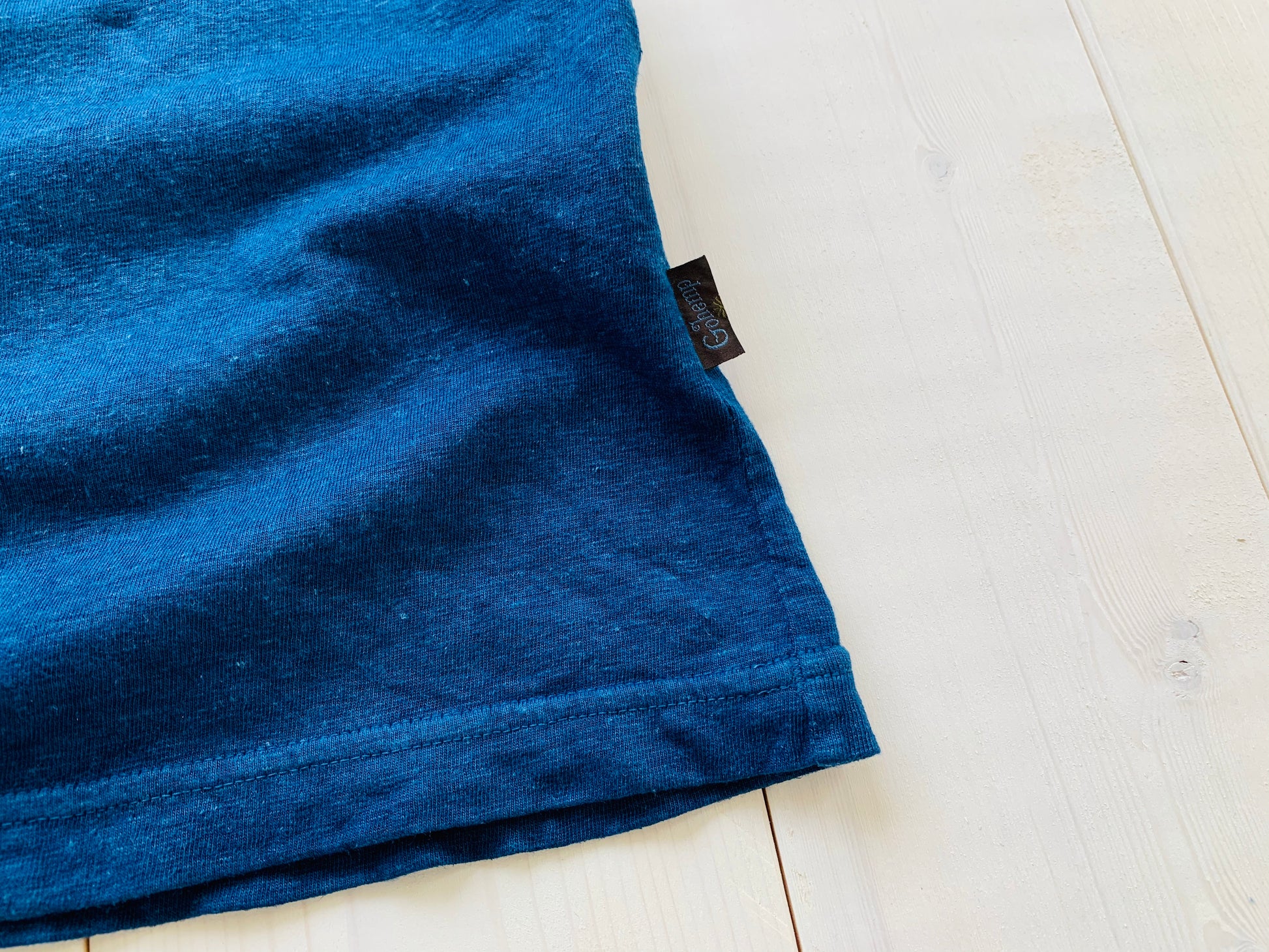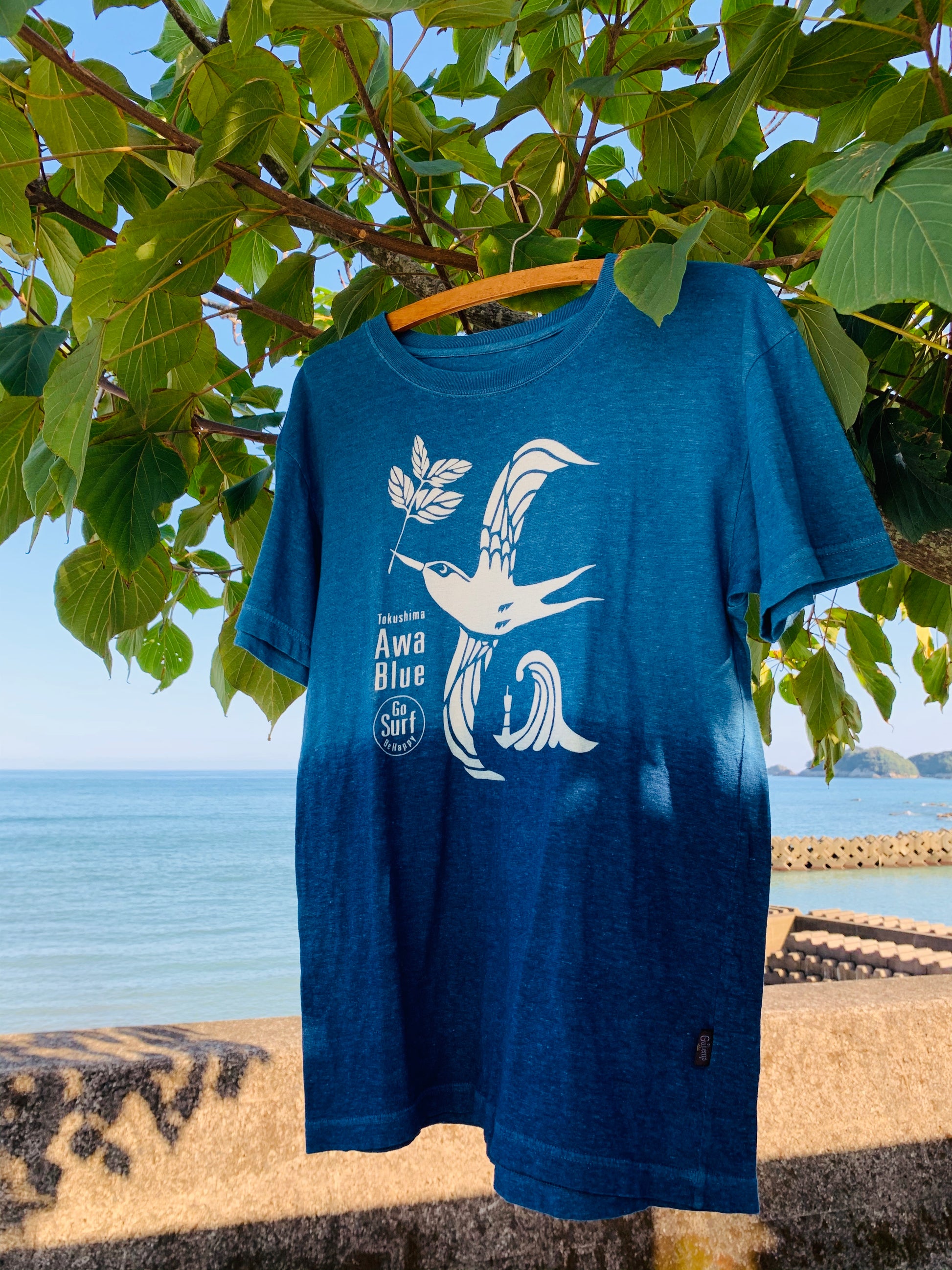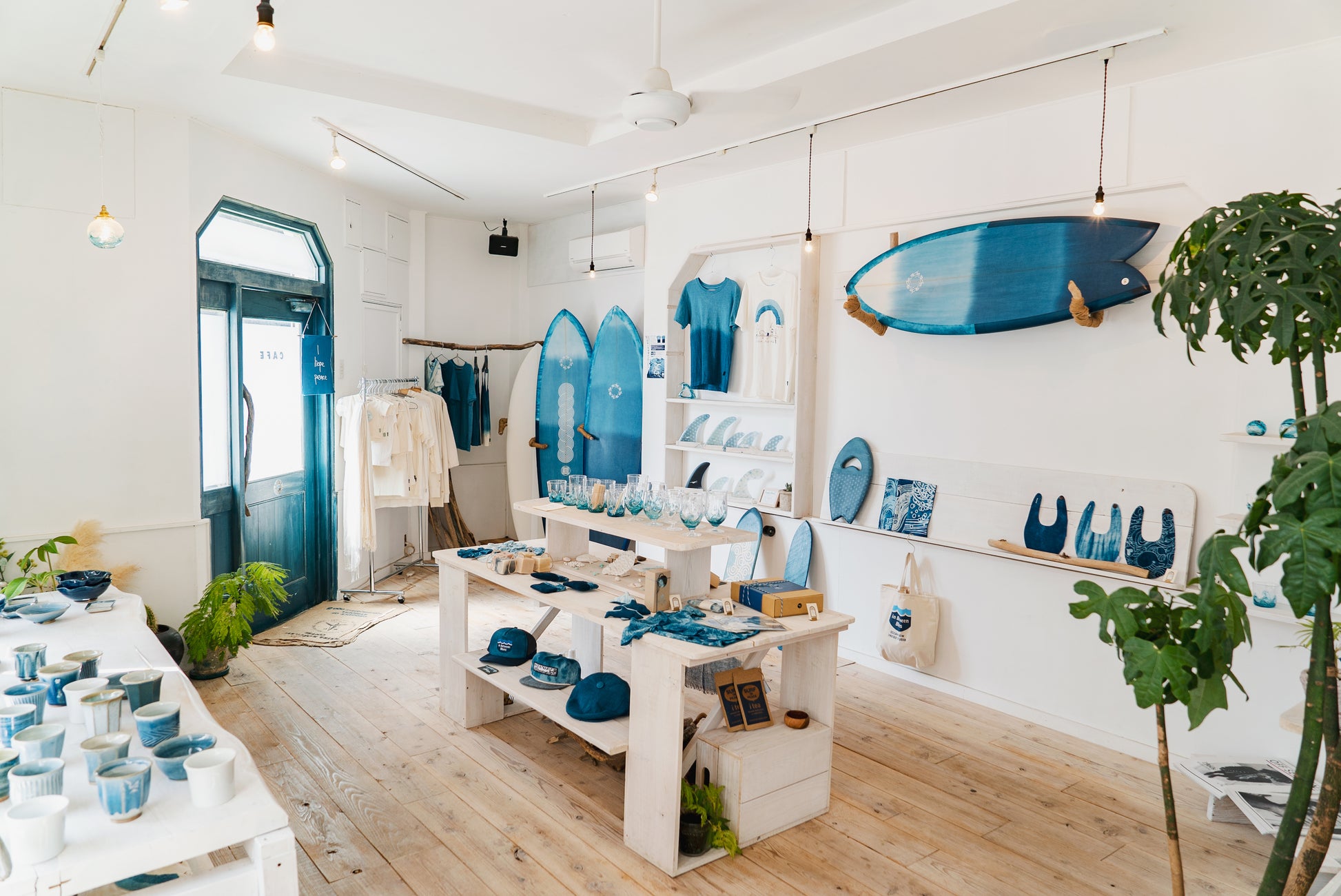in Between Blues
Awa Blue Indigo Shirt M/XS
Awa Blue Indigo Shirt M/XS
Couldn't load pickup availability
Condition:
Brand New.
In response to the decision to include surfing as an official event of the Olympics, Tokushima Prefecture, the mecca of surfing, has created an indigo-dyed surf design t-shirt that combines the traditional culture of the prefecture, Awa Ai.
The back of the t-shirt features the "Gumi Indigo Sea Ripple" motif of "Indigo Tokushima" by graphic designer Asao Noro, who created the official emblem for the Tokyo Olympics and Paralympics.
Aizome: In Japan, the majority of Aizome products are dyed with imported indigo using non-traditional dyeing methods, making genuine Aizome a rare commodity. in Between Blues uses dye made of fermented indigo leaves from Tokushima Prefecture and carefully dyes each piece using the traditional lye fermentation construction technique.
Fabric: Original T-shirts made of organic cotton and hemp fabric from the apparel brand GO HEMP are used.
Dyeing design: The sky and sea expressed in shades of indigo are inspired by Kobo-Daishi Kukai, the founder of the 88 pilgrimage culture of Shikoku.
Illustration concept: The indigo leaves are entrusted to a migratory bird (the Chinese Crested Tern) that connects the islands of the Pacific Ocean, hoping that love will spread widely throughout the world.
Let's protect the beautiful coastal environment of Tokushima, where beautiful waves crash and migratory birds still visit. Let's cherish the feeling of respect for nature! Let's respect nature!
<About in Between Blues>
A seaside indigo dyeing studio and cafe that conveys locally and globally the charm of its hometown, which is connected to the sky, sea, and indigo.
We offer wonderful products and event spaces that incorporate Tokushima's traditional culture of indigo dyeing, the 88 pilgrimage sites of Shikoku built by Kobo Daishi Kukai, and the appeal of surfing.
How to use
How to use
Payment
Payment
We process all orders in Japanese Yen.
It is a just guide to help you grasp our prices in | | JPY.
So you see all prices and charges in only ¥ | JPY on the payment provider's page.
The actual amount you pay in your currency would be higher a bit than the total amount automatically converted in shopping cart.
It just because that it includes some currency exchange fee by each payment provider.
If we refund the order, you may receive the different amount from the one when you paid because currency exchange rate changes.
We appreciate your understanding.
Shipping
Shipping
Shipping/Handling Charge
All products will be shipped from Japan.
Total shipping weight and shipping/handling fees will be calculated automatically.
Remote Areas
In case of remote areas, we will ask for extra shipping charge.
Import Duties, Taxes, and Charges
Import duties, taxes, and charges are not included in the item price or shipping charges. These charges are the buyer's responsibility.
Please check with your country's customs office to determine what these additional costs will be prior to bidding/buying.
These charges are normally collected by the delivering freight (shipping) company or when you pick the item up - do not confuse them for additional shipping charges.
For the Customers in Itay and Brazil:
Tell us your Tax Code, Codice Fiscale(Italy), CPF(Brazil), please.
We need them to fill in shipping documents.
Arranging After Payment
We appreciate your understanding that there is some possibility to arrange shipping cost after you make payment.
If short, we send an invoice for the balance and if over, refund the excess.
Combined Shipping
We can accept combine shipping for all orders made within 7 DAYS from the 1st order.
Handling Time
We need 1-4 days to move the items from our shops/warehouse to our international shipping office.
In the case we need to take some items from makers/wholesalers, there is some possibility to take 5-7 days or more days.
Delivery Service
EMS/EXPRESS MAIL SERVICE
DHL EXPRESS
FedEx
will be recommended because it is traceable, fully insured and faster.
AIRMAIL/ePACKET
You can choose these for Light Small Orders.
Airmail and ePacket are available for LESS THAN 2000g respectively.
Airmail is recommended ONLY for products with LESS VALUE than around 3000JPY because we CAN NOT REFUND when the parcel gets lost, stolen and damaged.
ePacket recommended only for less value than anywhere around 6000-10000JPY considering insurance can cover up to 6000JPY.
we CANNOT REFUND MORE THAN 6000JPY
when the parcel gets lost, stolen and damaged.
Shipping Charge and Duration
You can see shipping charge and duration table here
Shipping Charge and Duration Table
Required Shipping Information
We can ship ONLY to your PayPal address.
We need your phone number and for some countries, additional information like tax code is required.
We cancel your order if we do not get all these information within 7 days.
Shipping Arrange Request
We can arrange your shipping as much as we can do.
Please feel free to ask us anything about your shipping but before that, you have to complete your order with payment.
Shipping Arrange Request Form
***Do not worry to close your order and make payment before asking us to arrange.
We will refund or send another invoice for the difference to adjust.
Cancel/Return
Cancel/Return
We are committed to providing the best customer service available.
We honor all terms and conditions mentioned on our website and strive to ensure your shopping experience will be trouble-free and enjoyable.
If for any reason you are not satisfied with the condition of your purchase, we will do everything in our power to resolve the situation in a timely and positive manner.
Refund Fee:
On items canceled or returned for a refund and changes after we capture payment with because of the buyer's circumstance, there will be a 5% refund fee for the refund amount.
That's why PayPal and other payment providers don't return the settlement fee to us when we refund the money to you.
Restocking Fee:
After the items are moved from our shops and suppliers, on items canceled or returned for a refund and changes with because of the buyer's circumstance, there will be a 15% restocking fee.
And we do not refund any shipping charges once the items are shipped out from our international shipping office.
The buyer is also responsible for all cost sending the item back.
Return Policy:
We do not accept a return, exchange, in case of damage or loss, the actual damage cost will be COMPENSATED within the amount shipping insurance can cover.
If you choose Airmail with no insurance no tracking, you CAN NOT receive any compensation.
Return Conditions
1) For "Brand new" condition items: They must be in new condition. Returns on damaged or scratched merchandise WILL NOT be accepted.
2) All product packaging (boxes, manuals, warranty cards, etc.) and certificates of authenticity must be returned with the item. Any items returned without original documentation will be rejected. DO NOT deface original cartons or packaging in any manner. We will not accept a return if the packaging is not in its original condition.
3) Watches that have been resized, damaged or otherwise altered after delivery WILL NOT be accepted for return.
4) Returns are permitted within 30 DAYS from the date of receipt of goods. All Shipping, Handling, and Insurance charges are NOT REFUNDABLE.
***Even if we offer free shipping for the item, we refund the balance after deducting the postage for the ORIGINAL SHIPPING/HANDLING charge.
5) Shipping and handling charges for returning items will be borne by the buyer.
6) Insure the shipment for the value of the merchandise and ship your return with a signature shipping service.
Share
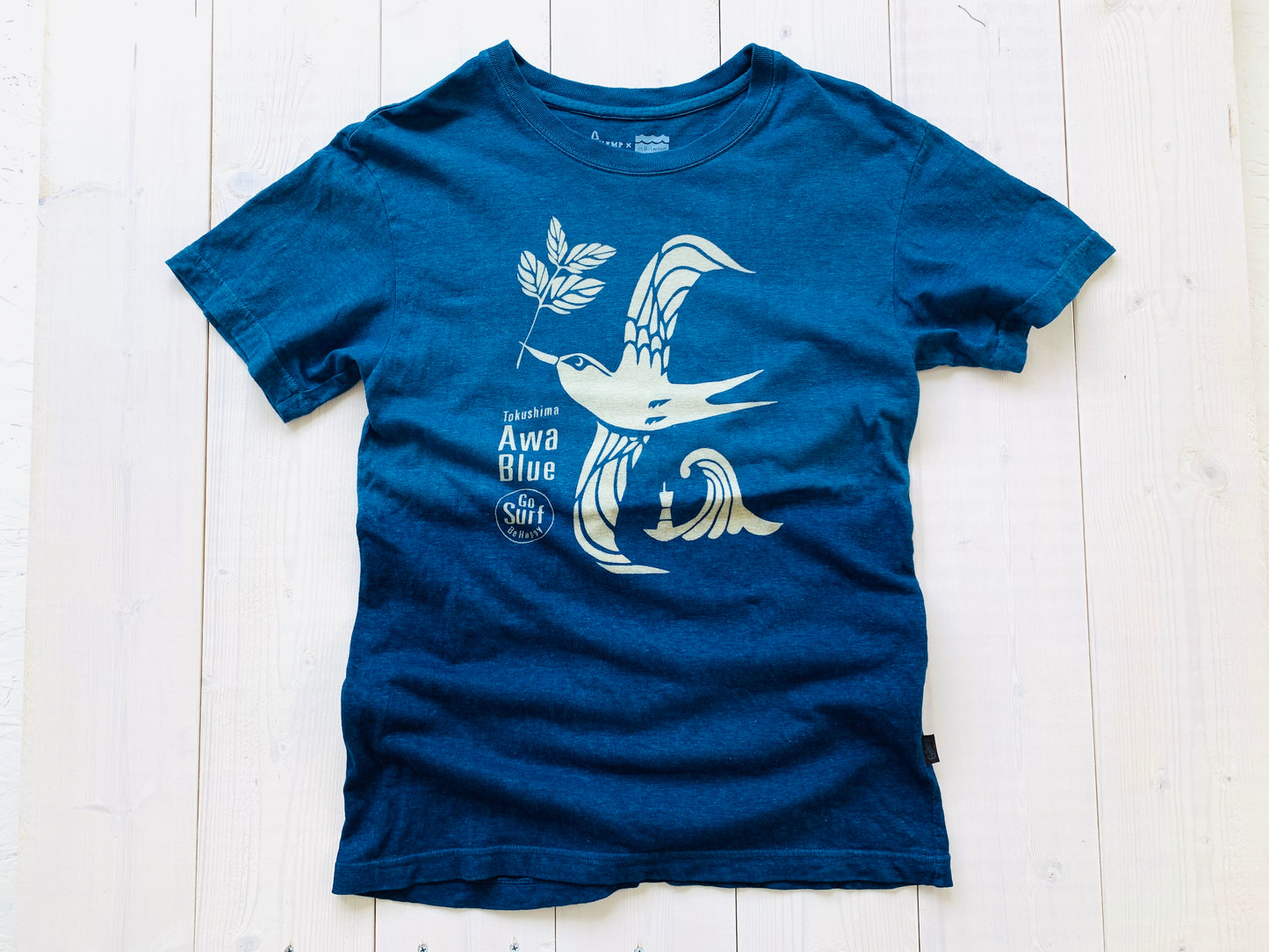
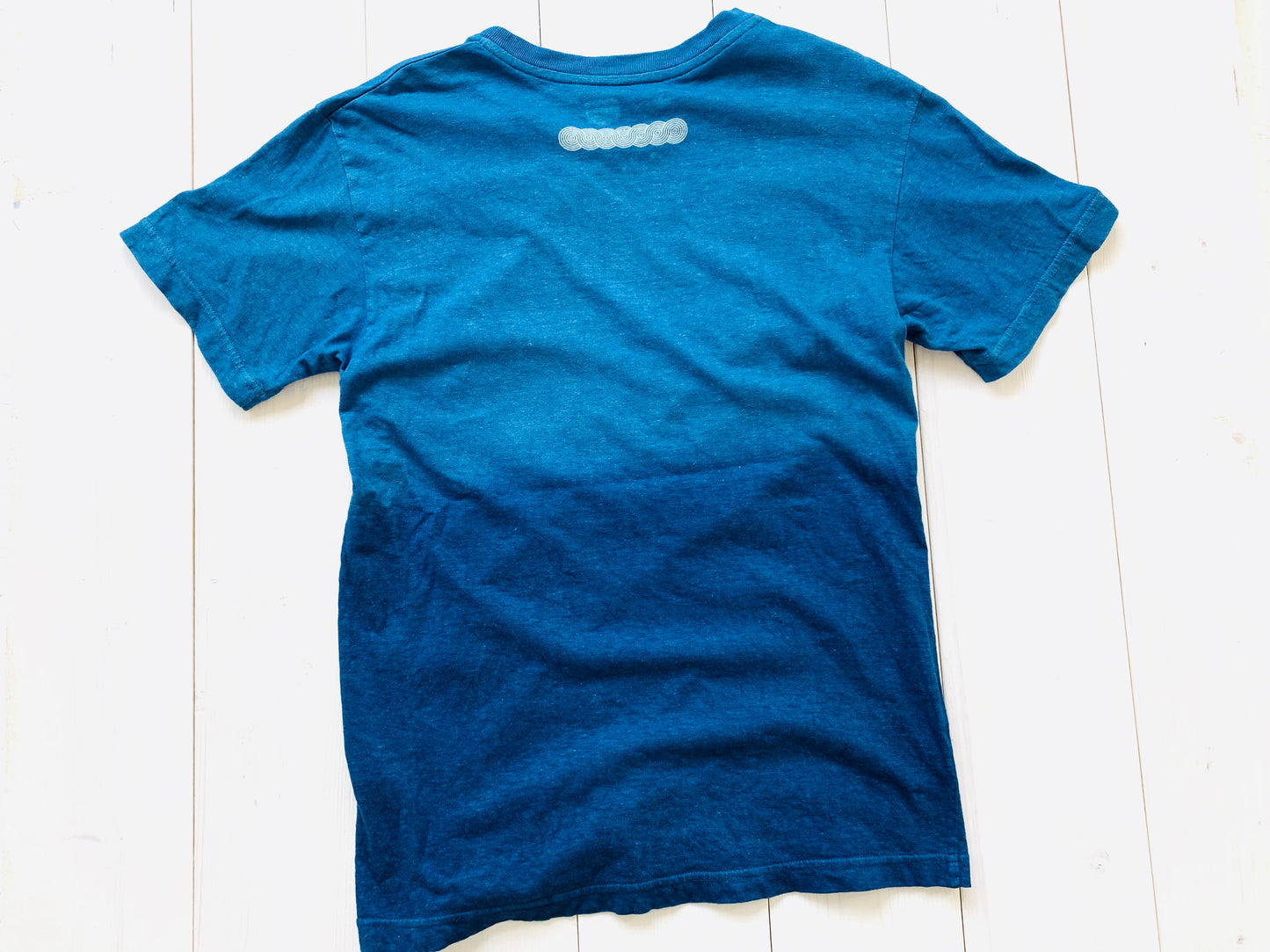
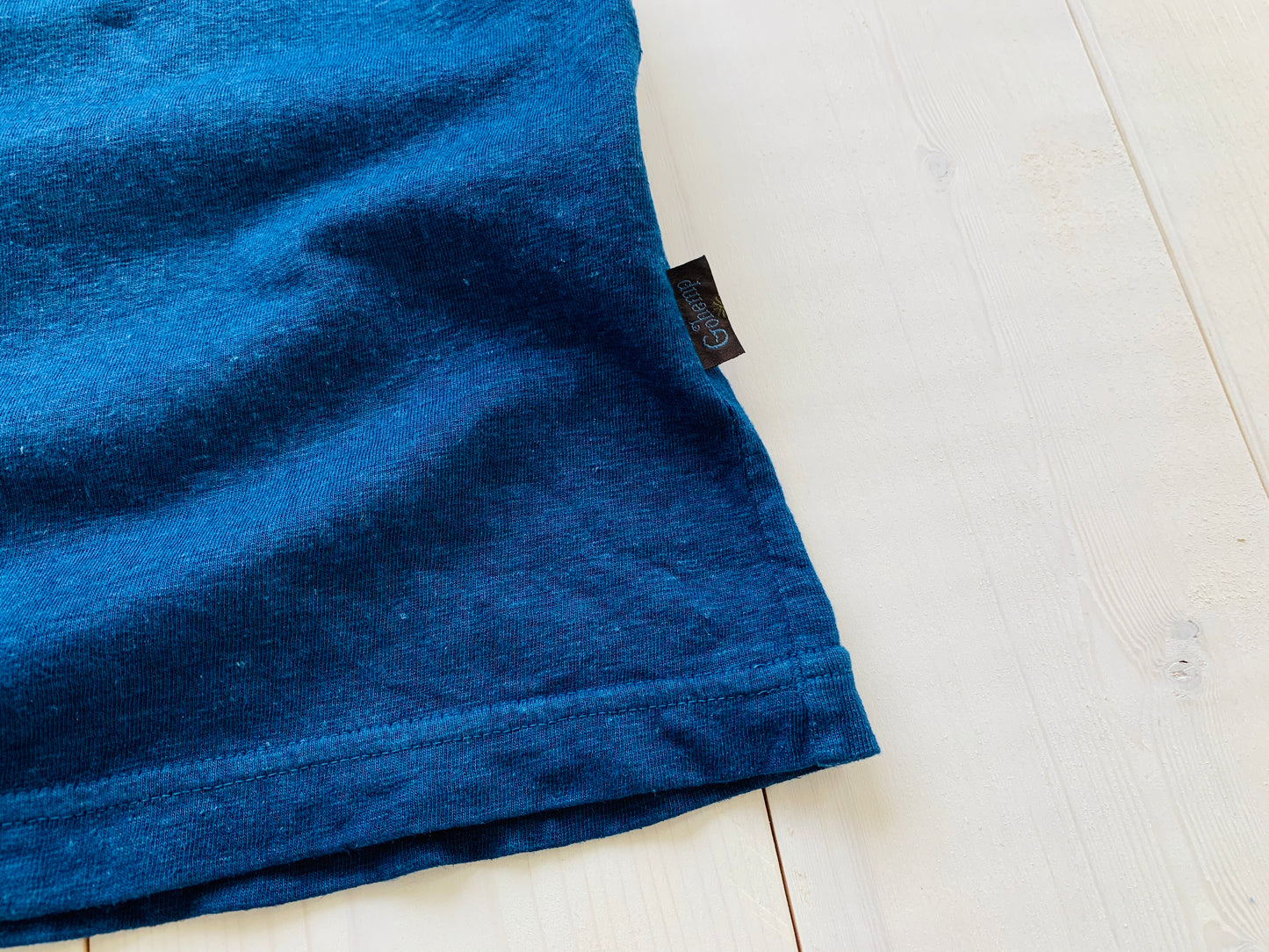
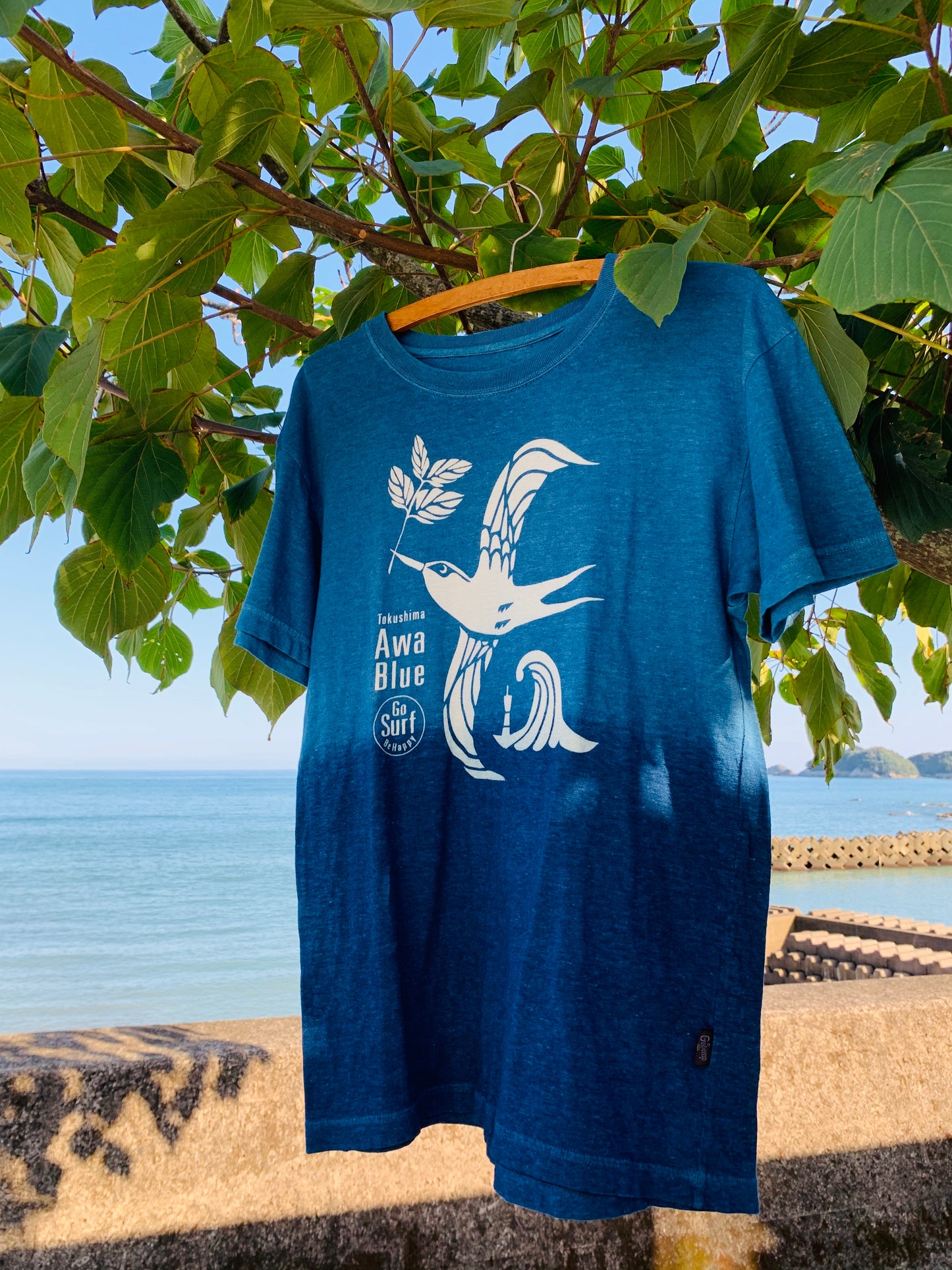
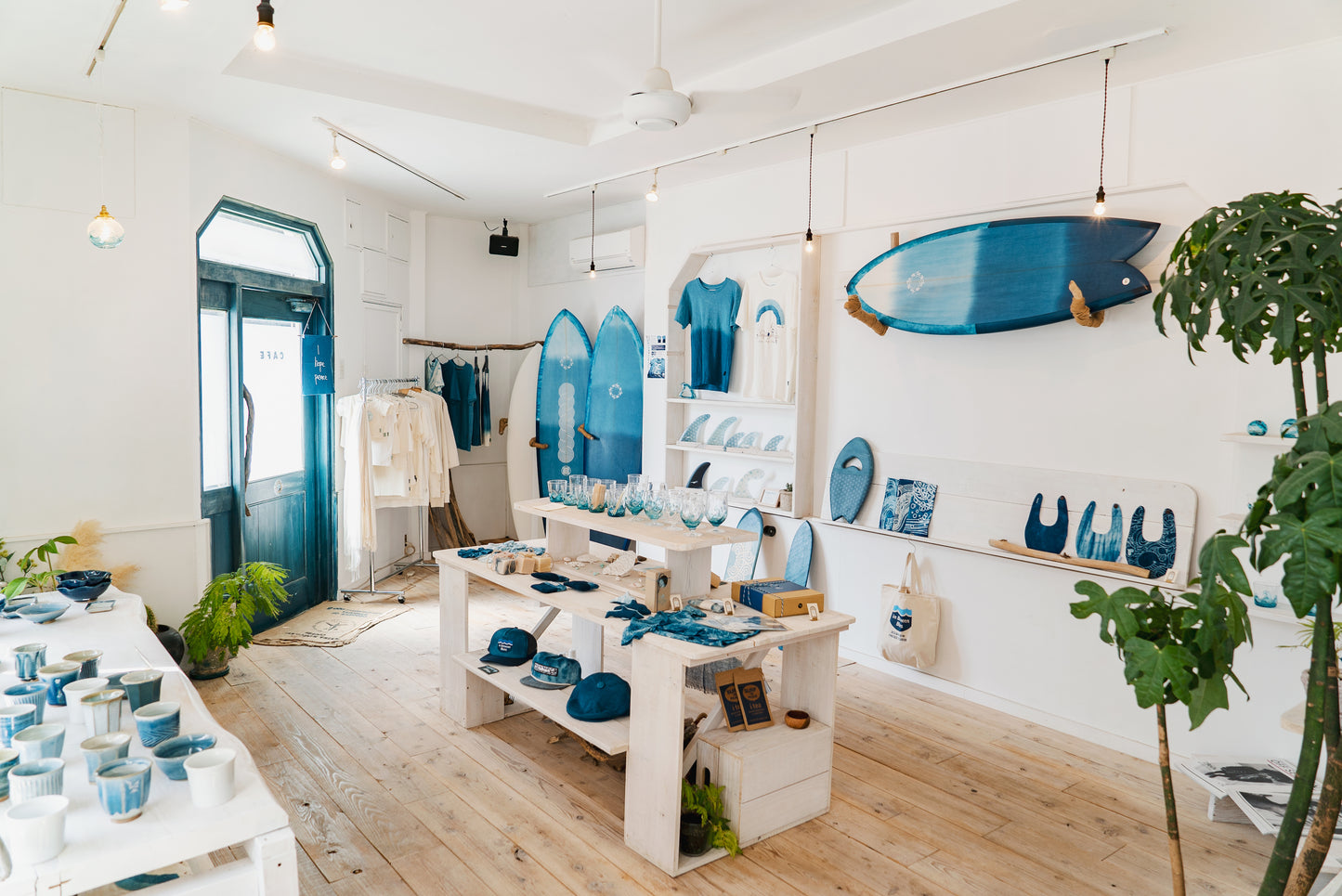
-
Culture
Traditional skills are used for a modern product.
-
Natural indigo has been used to promote health and repel insects.
Health
-
"Living for Each Other and All"
We export Japanese products that contribute to the environment, society and culture.
HAMON is Japanese for "ripples."
We hope that the actions of each of us will spread like ripples and make the earth a better place.
Blog posts
View all-
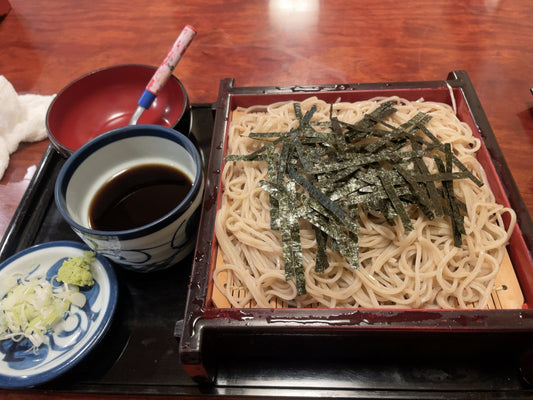
Soba Making Experience
SasakiKaoruI participated in a Soba making experience for the first time with the HAMON JAPAN customers visiting Japan. Sensei spoke fluent English and it greatly helped. Kneading requires a lot...
Soba Making Experience
SasakiKaoruI participated in a Soba making experience for the first time with the HAMON JAPAN customers visiting Japan. Sensei spoke fluent English and it greatly helped. Kneading requires a lot...
-
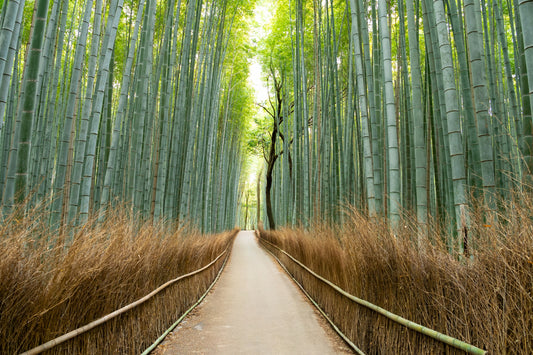
Possibility of Bamboo
SasakiKaoruBamboo is a very familiar part of Japanese life. In spring, we enjoy eating the seasonal bamboo shoots, and we use bamboo in our daily lives for a variety of...
Possibility of Bamboo
SasakiKaoruBamboo is a very familiar part of Japanese life. In spring, we enjoy eating the seasonal bamboo shoots, and we use bamboo in our daily lives for a variety of...
-
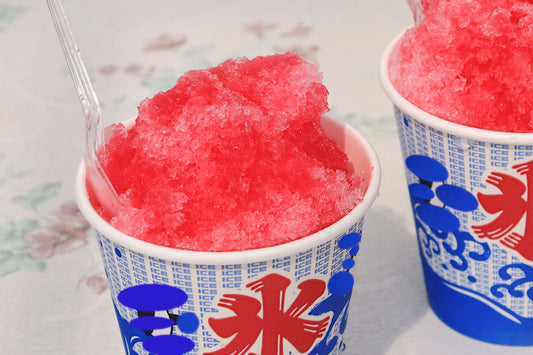
Is It Just Ice, or Not?
SasakiKaoruAs in the past year, Japan has been hit by a heat wave, and "kakigori (Japanese shaved ice)" has been popular as ever amidst the heat. Japan's delicate shaved ice is...
Is It Just Ice, or Not?
SasakiKaoruAs in the past year, Japan has been hit by a heat wave, and "kakigori (Japanese shaved ice)" has been popular as ever amidst the heat. Japan's delicate shaved ice is...
